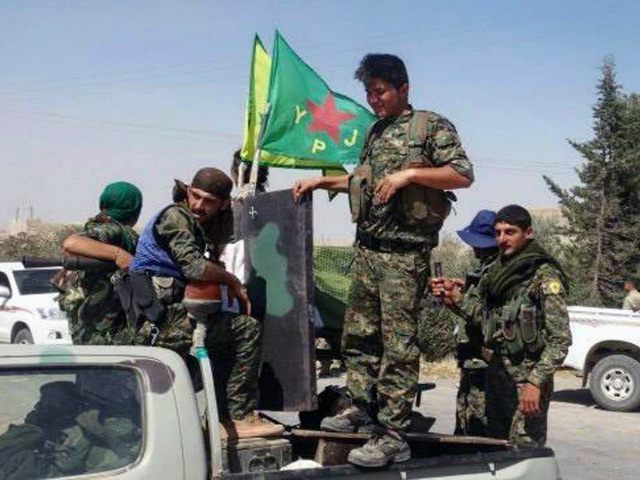The Kurdish People’s Protection Unit (YPG), the armed wing of the Syrian Democratic Union Party (PYD) that controls large swathes of northern Syria, has declared that it is “not bound” by any decisions made during the current Syria peace talks in Kazakhstan.
The militia, considered among the most successful in combating the Islamic State, was not invited to the negotiations.
Sponsored by Russia, Turkey, and Iran, with a noted absence by the United States, indirect negotiations between Syrian rebel fighters and officials loyal to dictator Bashar al-Assad began Monday in the Kazakh capital of Astana, marking the first face-to-face meeting between the two warring sides in nearly six years of ongoing civil war in Syria.
After negotiations on Tuesday, Iran, Russia, and Turkey announced they would jointly “enforce” a fragile three-week ceasefire in Syria.
“As we are not participating in these talks, we stress that we are not bound by any decisions issued from the Astana conference,” proclaimed the YPG in a statement, according to Reuters.
“We, in the People’s Protection Units (YPG), believe the entities that are participating and that have sponsored these talks are part of the problem in Syria in the first place,” added the Syrian Kurdish militia.
Neither the YPG nor its political arm the PYD were invited to the negotiation table in Astana because Turkey has long considered the Syrian Kurdish groups to be an extension of the Kurdistan Workers’ Party (PKK), a Marxist guerrilla movement that has been designated a terrorist organization by Ankara.
While the United States has also deemed the PKK a terrorist organization, it is at odds with Turkey over the designation of the PYD and YPG as such.
Under former President Barack Obama, the United States considered Syrian Kurdish groups to be one of America’s most effective allies in the war against the Islamic State (ISIS/ISIL).
The New York Times (NYT) points out that the current peace negotiations in Astana descended into quarreling between the Syrian rebels and Assad officials on Monday, the first day.
According to the YPG, the solution to the Syrian conflict is “through democratic autonomous zones that preserve the unity of the Syrian land and that we are applying on the ground,” adding that the warring sides “could benefit from this experience that we have established.”
After being excluded from the United Nations-brokered negotiations in Geneva last year, which were ultimately suspended, the PYD moved to combine three Kurdish-led autonomous areas in northern Syria into a proto-state — The Federal Democratic System of Rojava-North Syria.
Russia insisted that Syrian Kurds should be part of the talks in Switzerland, which ultimately failed as the PYD predicted.
YPG fighters have avoided fighting with forces loyal to Assad for the most part, but there have been some clashes between the two groups.
Meanwhile, the YPG has clashed with nationalist Syrian Arab rebels who believe the Kurdish militia is collaborating with Assad, an allegation that the group denies.
Until recently, Turkey and Russia had been on opposite sides of the Syrian civil war with Ankara supporting the rebels and Moscow backing Assad.
Now, NATO allies U.S. and Turkey find themselves on opposite sides of the conflict.
Turkey is backing the Free Syrian Army (FSA) rebels who have been recently fighting against the U.S.-allied YPG. FSA fighters have received military assistance from America in the past.

COMMENTS
Please let us know if you're having issues with commenting.